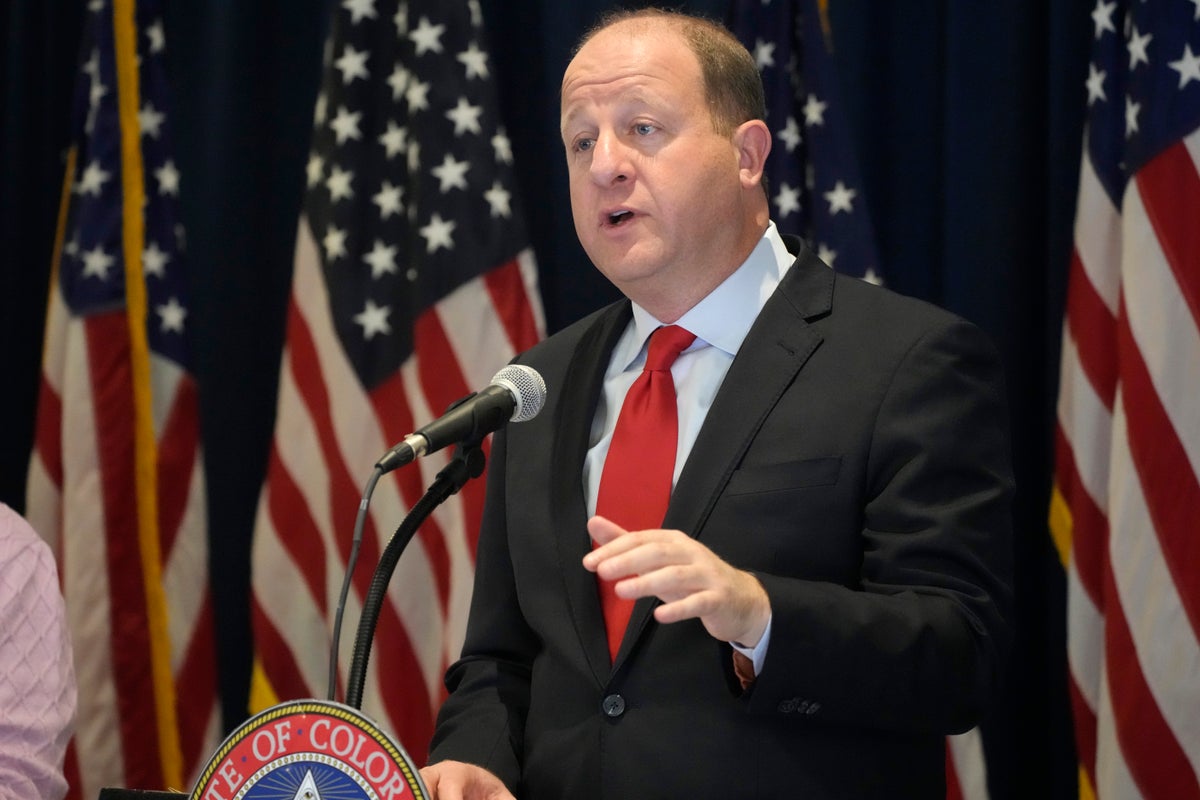
In his campaign for a second term as Colorado’s governor, Democrat Jared Polis has had to fend off attacks by GOP challenger Heidi Ganahl on his pandemic record, surging crime and the fentanyl crisis -- topics that dominated clashes between the two in multiple forums and debates leading up to Tuesday’s midterm election.
Ganahl, who is trying to become Colorado’s first Republican governor since 2007, campaigned on the slogan “#MadMom” and tried painting an ominous portrait of the state. Polis countered by calling himself a “happy dad" of two kids who he is raising in what he called “the best state of all the states.”
Polis, a wealthy tech entrepreneur who’s largely self-funded his campaign, insists Colorado quickly emerged from the coronavirus shutdown poised for strong economic growth. He’s championed first-term successes in health care affordability, fully-funded kindergarten and preschool, and vows to continue his relentless pursuit to move Colorado’s electrical grid to renewable energy by 2040.
But Polis had to bolster those campaign points by highlighting his administration’s efforts to ease inflation’s burdens on Colorado families and address rampant car theft and other crimes that have soared in U.S. cities after the pandemic. He also came under withering criticism from Ganahl for opioid overdose rates that are taking their toll on Colorado’s children.
Polis countered by criticizing Ganahl for appointing a running mate who has claimed that Joe Biden was not legitimately elected president in 2020.
Ganahl, herself a business entrepreneur who as a University of Colorado regent is the only Republican statewide elected official, faced an uphill battle in a state that’s trended blue over the past decade thanks to an influx of college-educated residents in a growing metropolitan area where Democrats hold sway.
Seizing Republican campaign themes used across the country, Ganahl sought to hold Polis responsible for annual inflation surpassing 8%. She blamed Polis and fellow Democrats who control the Legislature for easing criminal penalties in laws signed before and after protests against George Floyd’s killing and racial injustice rocked Denver and other cities. A law signed this year leaving possession of one gram or less of deadly fentanyl a misdemeanor provided an easy opening for Ganahl’s attacks.
Ganahl said she’d eliminate Colorado’s income tax and cut state bureaucracy that’s grown under Polis. While Polis signed a new law codifying the right to abortion and vowed to protect non-Colorado residents seeking reproductive health care in the state, Ganahl, who opposes late-term abortions, vowed to put the issue to voters -- despite the failure of several ballot measures to restrict or ban abortion in recent years.
Ganahl described herself as a “mom on a mission,” and later as a “mad mom,” often citing the pain of parents who’d lost their kids to drug overdoses or who are still struggling with the loss of learning and social isolation wrought by pandemic school closures. Advocating school choice, she insisted parents are shut out of what their kids were learning in the classroom.
But she ran into trouble by repeatedly citing a hoax, echoed by other Republican candidates, that schoolkids were dressing up as cats in the classroom as an expression of the trauma inflicted during the pandemic. Colorado news outlets repeatedly discredited the claims.
After much prodding from the media, Ganahl belatedly acknowledged that Democrat Joe Biden won the presidential election. And she selected an election denier, Danny Moore, as her running mate, a choice celebrated by many Colorado Republicans. Both insisted in the late stages of the campaign that they each recognize Biden as the U.S. president.
Polis countered Ganahl’s dark casting of Colorado in crisis by ridiculing her references to “furries” in schools and blamed inflation on global factors such as supply chain and energy market disruptions.
He insisted first-term oil and gas industry regulations prioritizing public safety over production in Colorado hadn’t hamstringed the state’s multibillion-dollar industry, as Ganahl claimed. Lower in-state production reflects global markets, he argued.







